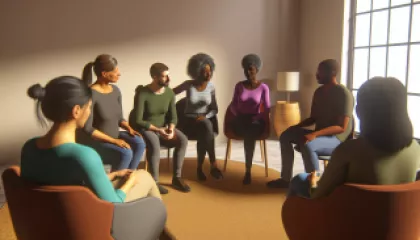Understanding Grief: Insights from Recent Studies
Grief is a universal human experience, yet it remains one of the most misunderstood and least-studied phenomena in psychology. Recent research has provided new insights into the nature of grief, its psychological impacts, and the best strategies for coping with it. This article will summarize some of the key findings from this research, providing a comprehensive overview of our current understanding of grief.
The Nature of Grief
Grief is a complex emotional response to loss, typically the death of someone we care about deeply. While it is usually associated with feelings of sadness and despair, grief can also include a wide range of other emotions, such as anger, guilt, anxiety, and even relief, depending on the circumstances of the loss. These emotions can vary greatly in intensity and duration, making each person's grief experience unique.
"Grief is not a disorder, a disease or a sign of weakness. It is an emotional, physical and spiritual necessity, the price you pay for love. The only cure for grief is to grieve."Earl Grollman, American Rabbi and author
Stages of Grief
One of the most influential models of grief comes from psychiatrist Elisabeth Kübler-Ross, who proposed that people go through five stages of grief: denial, anger, bargaining, depression, and acceptance. However, recent research suggests that this model may be oversimplified. Instead, grief appears to be a more fluid process, with people moving back and forth between different emotions rather than progressing through fixed stages.
Psychological Impacts of Grief
Grief can have profound psychological impacts, including symptoms of depression and post-traumatic stress disorder (PTSD). Recent studies have shown that people who have lost a loved one may be at a higher risk for various mental health problems, particularly if they had a close relationship with the deceased person or if the death was sudden or traumatic.
Coping Strategies
Research has also provided insights into the most effective strategies for coping with grief. These include seeking social support, expressing emotions, and finding meaning in the loss. It's important to note that what works best can vary from person to person, reflecting the highly individual nature of the grief experience.
- Seeking Social Support: Connecting with others who have experienced similar losses can provide comfort and reduce feelings of isolation.
- Expressing Emotions: Sharing feelings with others, writing about them, or expressing them through art or music can help people process their grief.
- Finding Meaning: Some people find it helpful to seek meaning in their loss, whether through religious beliefs, philosophical reflections, or actions that honor the memory of the deceased.
Grief Therapy
For some people, grief can be so overwhelming that professional help is needed. Grief therapy is a form of psychotherapy that aims to help people cope with the physical, emotional, social, spiritual, and cognitive responses to loss. Recent studies have shown that grief therapy can be effective in reducing symptoms of depression and PTSD, improving general mental health, and enhancing quality of life.
Conclusion
In conclusion, recent research has greatly expanded our understanding of grief, revealing it to be a complex, individualized process with significant psychological impacts. While there is still much to learn, these insights are helping to guide more effective strategies for coping with grief and providing hope for those struggling with loss.
"The reality is that you will grieve forever. You will not 'get over' the loss of a loved one; you will learn to live with it. You will heal and you will rebuild yourself around the loss you have suffered. You will be whole again but you will never be the same. Nor should you be the same nor would you want to."Elisabeth Kübler-Ross, psychiatrist and author
This article provides a brief overview of the current research on grief. However, it's important to remember that everyone experiences grief in their own way. If you or someone you know is struggling with grief, it's crucial to seek professional help.








